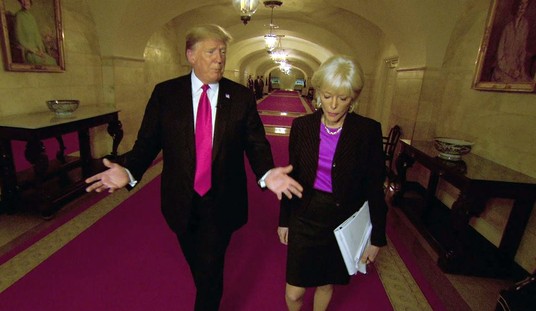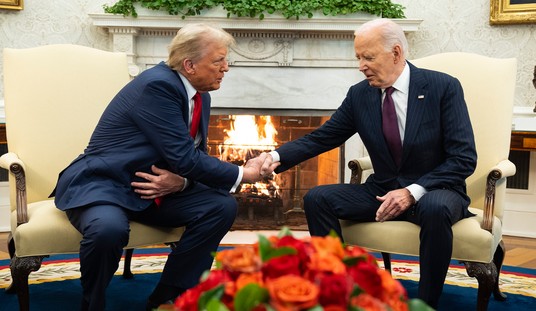"Iran is breaking rules that all nations must follow, endangering the global nonproliferation regime, denying its own people access to the opportunity they deserve, and threatening the stability and security of the region and the world."

No, that wasn't Israel's tough-talking prime minister, Bibi Netanyahu, warning against Iran's aggressive tendencies again. It was Barack Obama addressing the UN Security Council last week.
The president of the United States wasn't the only Western leader objecting to Iran's fast-developing, widely dispersed, ever more hardened nuclear sites. "There comes a time when stubborn facts will compel us to take a decision," said the French president, Nicholas Sarkozy. Things must be moving fast. Even the French have recognized the latest and most potent threat arising in the Middle East.
The British prime minister, Gordon Brown, chimed in, too. "The international community has no choice but to draw a line in the sand," he warned.
Recommended
Yes, and this latest line will doubtless prove a perfect match for all the others the UN has drawn against Iran's nuclear program over the years. And will be just as easily ignored. For the only thing all these solemn resolutions lack is any real resolve.
Messrs. Obama, Sarkozy and Brown said all the right things at the Security Council. There was only one question they didn't answer satisfactorily: Just who do they think they're kidding?
At this late date, it becomes even clearer that Iran's mullahs are not going to be dissuaded from developing nuclear weapons by oh-so-brave speeches from the podium of the United Nations. For the UN is proving an all too worthy successor to the old, pathetically useless League of Nations, that earlier international debating society.
No wonder the regime in Iran is less than impressed by all these words that are only words. I hope I'm not revealing any state secrets here, but a wide variety of sanctions against Iran already have been imposed by the Western powers -- and they've already failed to stop its steady progress toward becoming a nuclear power.
This still new, not to say green, American president used to call the conflict in Afghanistan a "war of necessity," but now his administration quails at committing the kind of force there that success might require. Can anyone imagine his now giving the order to take out Iran's nuclear facilities? At this point he seems mainly indecisive; overwhelmed comes later. Which is how Jimmy Carter's presidency wound up.
Only the Israelis seem fully aware of the threat Iran now poses, or at least fully aware of the need to do something besides talk about it. They know that with every passing day, as the world and the centrifuges turn, the existential threat to their existence grows. How long before Iran's little fuehrer gets his nuke and can fulfill his promise to wipe Israel off the map? A year?
Israel's leaders, and even more so its people, understand that they no longer face a political but a military challenge. This time it's a more formidable one than blowing up Syria's oh-so-secret nuclear plant a couple of years ago. Or even destroying Saddam Hussein's reactor at Osirak in 1981. The distances involved and coordination required for a strike or strikes inside Iran are daunting. Even more so than the obstacles that had to be overcome in 1976 when an Israeli strike force flew deep into Africa to rescue the hostages at Entebbe in Idi Amin's Uganda.
And what would be gained by attacking these Iranian sites? Even if the Israelis succeeded despite the long odds, and somehow avoided setting off a war that would engulf the Middle East, how long before those nuclear facilities were rebuilt or replaced? And the Iranians were finally able to launch their airborne Auschwitz?
But another decade of life and peace, or even another year, is no small achievement in a neighborhood as volatile as the Middle East. Of all the dangerous courses available to the Israelis, the most dangerous would be to just sit there and wait for The End.
Israel's leaders have to know the dangers an Israeli strike would entail. It would be an attack that Israel's major and just about only ally, the United States, would vigorously oppose, at least formally. The Israelis certainly couldn't count on this administration to back them up.
Israel's current premier, Benjamin Netanyahu, is no stranger to the sacrifices that war demands. It is one thing to stage even a successful military operation, another to pay the price. Only one Israeli was killed during that daring raid on Entebbe so many years ago -- the commander of the Israeli commandoes. His name was Yonatan Netanyahu. He was the brother of the current prime minister.


